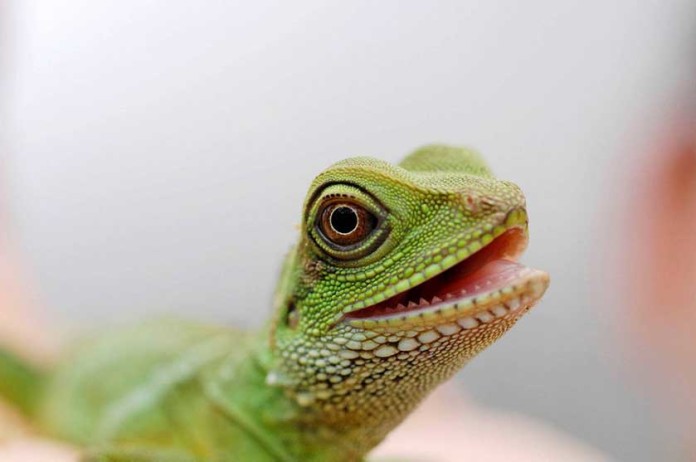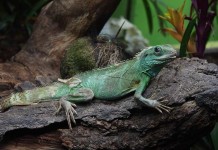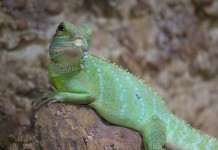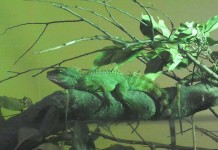Get to Know the Do’s and Don’ts of Chinese Water Dragon Enclosures
It is very natural for you to a have great interest in setting an enclosure for your water dragon. You need to have a large enclosure to house your exotic lizard. This is particularly important because your dragon may lose its front teeth or damage its snout when it tries to move out of a small enclosure. If you are ready to get a lizard of this size, make sure you give it sufficient space to move around. Ideally, the dragon enclosure should be twice the length of your new pet.
Chinese water dragons are arboreal creatures and love to have trees and branches around them. Water dragons are fond of enclosures that have plants and branches along the ground and on the sides. Placing live or artificial plants along the side works well if you have a glass enclosure. Live plants are a risky move because there are many species that are toxic to Chinese water dragons.
If you want to place live plants, you can use Spider plant and Kudzu. You can also add flowering plants like violets, dandelions, geranium and pansies. Having large branches in the enclosure will help your pet climb and rest. It is recommended that you use fake branches because they are safe for your pet. You should avoid cedar barks, as they are extremely toxic. Your pet can be harmed seriously if it ingests any part of the bark.
You also need to add an adequate amount of substrate to the enclosure. Most dragon owners prefer Astroturf or large woodchips that cannot be ingested. You have to be cautious if you add gravel, dirt or potting soil. Gravel can cause digestive problems if eaten accidently.
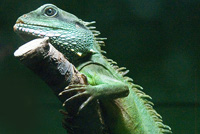 In case Astroturf is not available, you can add sterile soil to work as a substrate in the dragon enclosure. If the soil is not labeled as sterile, it needs to be baked at 300 degrees Fahrenheit for about 30 minutes to make it bacteria and germ free. Soil containing additives such as vermiculite, perlite or fertilizers can cause problems for your pet.
In case Astroturf is not available, you can add sterile soil to work as a substrate in the dragon enclosure. If the soil is not labeled as sterile, it needs to be baked at 300 degrees Fahrenheit for about 30 minutes to make it bacteria and germ free. Soil containing additives such as vermiculite, perlite or fertilizers can cause problems for your pet.
Shiny particles or additives in the soil can make dragons curious to eat the substrate. It can cause digestive problems or impaction and you would hate to see your pet suffer with pain and discomfort.

